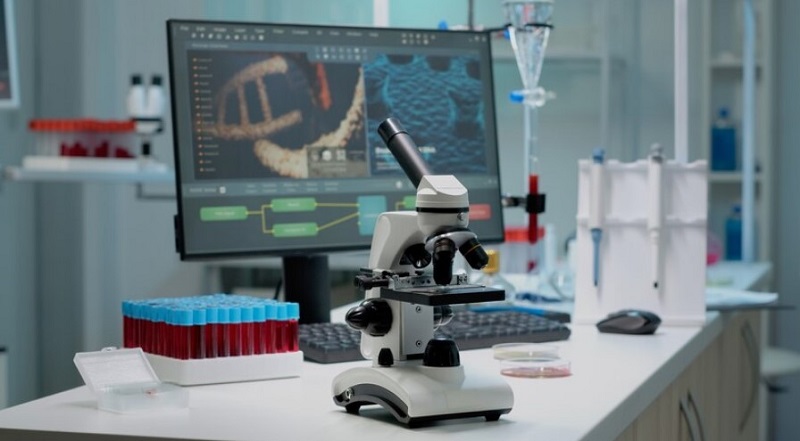Microscopes have played a pivotal role in revolutionizing the field of cell biology by enabling scientists to explore the intricate and fascinating world of cells. These remarkable instruments have opened up a realm of discovery, allowing researchers to delve into the microscopic structures and processes that underpin the functioning of living organisms. The importance of microscopes in cell biology cannot be overstated, as they provide scientists with the ability to observe and analyze cells in unprecedented detail, unraveling their complex organization, morphology, and interactions. By unlocking the secrets hidden within cells, microscopes have been instrumental in advancing our understanding of cellular function, disease mechanisms, and the development of new therapies, ultimately shaping the landscape of modern biology and medicine.
Use and Importance of Microscope in Cell Biology
Cell biology is a branch of biology that focuses on the study of cells, their structure, function, and behavior. Cells are the basic building blocks of life, and understanding their intricacies is essential for comprehending the complex processes that occur within living organisms.
The use of microscopes in cell biology is of paramount importance. Microscopes allow scientists to visualize and analyze cells at a level of detail that is not achievable with the naked eye. They enable researchers to observe cellular structures, such as the nucleus, mitochondria, endoplasmic reticulum, and Golgi apparatus, as well as the various cellular components and organelles that contribute to cell function.
Microscopes also play a crucial role in studying cellular processes. They enable scientists to observe and track cellular events, such as cell division, protein synthesis, cellular signaling, and intracellular transport. By visualizing these processes, researchers can gain insights into the mechanisms that regulate cellular function and understand how cells respond to stimuli or undergo changes during development, differentiation, or disease progression.

Moreover, microscopes are vital in investigating cell-to-cell interactions and cellular dynamics. They facilitate the study of cell adhesion, cell communication, and cell migration, allowing scientists to understand how cells interact with their environment and with other cells. This knowledge is crucial for fields such as developmental biology, immunology, cancer research, and tissue engineering.
Furthermore, microscopes have played a significant role in advancing our understanding of diseases at the cellular level. By examining diseased cells and tissues under a microscope, researchers can identify cellular abnormalities, characterize disease processes, and develop diagnostic and therapeutic strategies.
Overall, microscopes are indispensable tools in cell biology. They enable scientists to explore the intricacies of cellular structures, processes, and interactions, contributing to our understanding of fundamental biological mechanisms and driving advancements in fields ranging from medicine to biotechnology. The use of microscopes continues to push the boundaries of our knowledge, unlocking new insights into the complex world of cells and paving the way for groundbreaking discoveries.
Conclusion
In conclusion, the microscope plays a paramount role in cell biology, serving as a window into the intricate and fascinating world of cells. It has revolutionized our understanding of cellular structures, functions, and interactions. Microscopes enable scientists to visualize cells at a level of detail that is essential for unraveling the complexities of life processes. From observing the morphology and organization of cellular components to tracking dynamic processes and studying cellular interactions, microscopes have been instrumental in advancing our knowledge of cell biology.
They have paved the way for groundbreaking discoveries, facilitated advancements in various fields including medicine, genetics, and developmental biology, and have contributed to the development of diagnostic tools and therapeutic strategies. As technology continues to evolve, the microscope will continue to be an indispensable tool, empowering researchers to delve deeper into the cellular realm, unraveling its mysteries, and driving innovation in the understanding and manipulation of cells.



